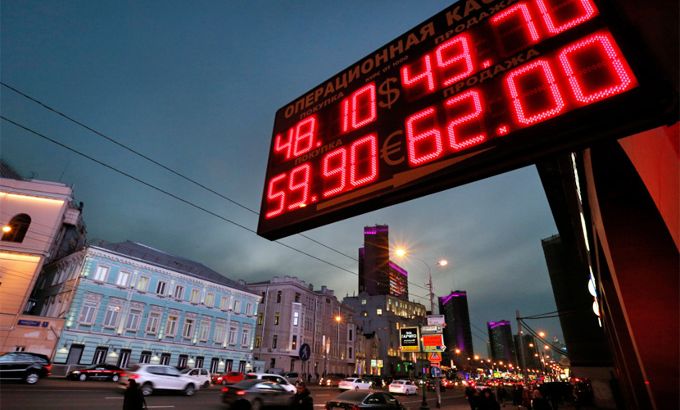
Russia’s economic crisis
Is Moscow simply at the mercy of global oil prices or is its foreign policy also to blame?
Russia’s currency, the ruble, has suffered its biggest one-day drop since 1998 – a sign of just how deeply in trouble the Russian economy is.
A sharp fall in oil prices together with a standoff with European nations over Ukraine has created what some are calling a “perfect storm”.
Keep reading
list of 4 itemsKey takeaways from Xi Jinping’s Europe trip
When will EVs become mainstream in the US?
Key takeaways from Xi Jinping’s European tour to France, Serbia and Hungary
The global slump in oil prices has hit hard. Oil accounts for 50 percent of the nation’s budget.
Finance Minister Anton Siluanov estimates that Russia will lose $100bn in revenue next year because of falling oil prices.
It’s all making investors very nervous. And in the first nine months of this year, $85bn were pulled out of the Russian economy.
As the ruble plummeted on Monday, Russian President Vladimir Putin was on a visit to Turkey.
He announced that he was scrapping the multi billion dollar South Stream pipeline that would have delivered Russian gas to Europe.
The Russian president blamed European nations for derailing the project.
Putin said he would re-direct the pipeline via Turkey resulting in cheaper gas for Turkish consumers.
Despite very public differences on foreign policy in places like Syria, Russia and Turkey appear to be keen to build closer economic ties.
So can new allies like Turkey help Putin turn Russia’s economic situation around, and how much has his own polices contributed to the crisis?
Presenter
Mike Hanna
Guests
Vyacheslav Matuzov – former Russian diplomat and political commentator.
Riccardo Puliti – Director of Energy and Natural Resources at the European Bank for Reconstruction and Development.
Sinan Ulgen – Chairman of the Center for Economics and Foreign Policy Studies, an independent think tank in Istanbul.